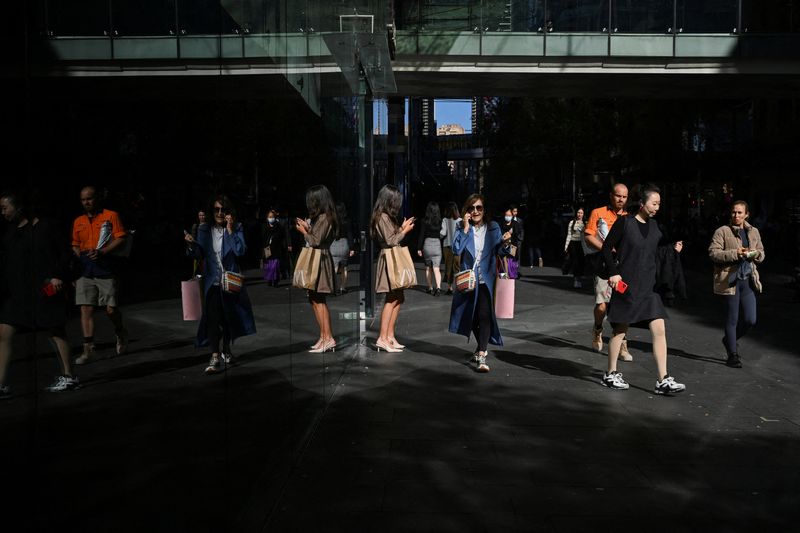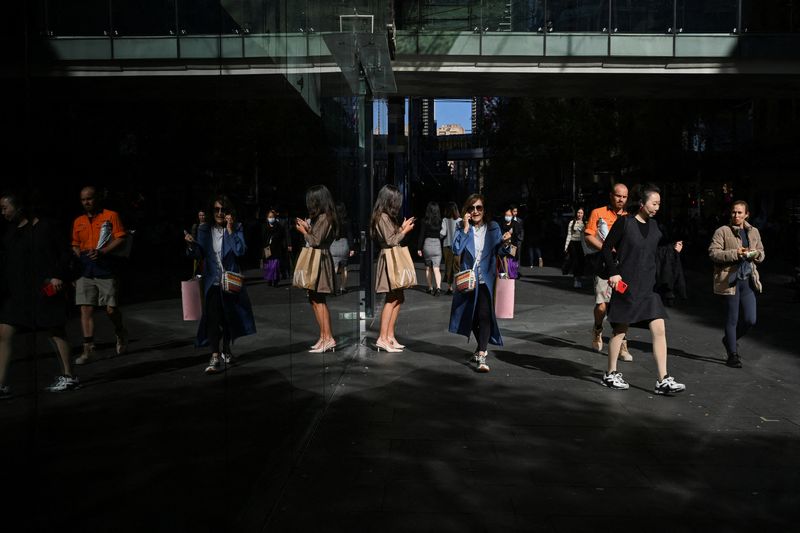
By Sneha Kumar and Rishav Chatterjee
(Reuters) – Australian discretionary retailers could benefit from expected interest rate cuts in 2025, analysts say, as shoppers loosen their belts to splurge on items such as electronics and footwear.
Retail spending has risen strongly, the latest data showed, underlining tax cuts and strong consumer confidence, and is expected to pick up in 2025 after the Australian central bank begins to ease interest rates.
“Rate cuts will undoubtedly be the largest factor investors will be looking at for the retail sector next year,” said Stella Ong, market analyst at share trading platform Superhero.
Customers cut back on non-essential spending over the past two years as wallets were squeezed by high inflation coupled with 13 cash rate hikes.
Retailers have been hit by the high borrowing costs, which eroded the buying power of consumers already cautious amid a cost-of-living crisis.
Investment research firm Morningstar said Australia’s retail spending was rebounding and the positive momentum was reflected in the buoyant share prices of cyclical retailers – a sign consumers were engaging in higher discretionary spending.
“We expect tailwinds to persist in the near term, likely supported by easing monetary policy. Cash rate futures are fully pricing the first rate cut by April 2025, with two more to follow by February 2026,” the firm said.
Citi analysts said they were watching how December trades for retailers but expect them to perform well across 2025, with steady interest rates, tax cuts and a strong labour market supporting consumer spending.
Electronics retailer JB Hi-Fi and clothing retailer Universal Store were among the top gainers, adding 83% and 88.7%, respectively, for the year, as of the last close.
“The discretionary stocks that thrived in 2024 were those with niche target markets including Universal Store,” said Grady Wulff, market analyst at online share trade platform Bell Direct.
JB Hi-Fi, the No. 2 consumer electronics chain, recorded stronger sales driven by a red-hot AI market, fuelling expectations for better-than-expected earnings.
The Reserve Bank of Australia’s (RBA) potential move to lower borrowing costs might aid economic activity and consumer spending, further boosting the performance of non-essential companies.
Wulff said retailers might face subdued earnings growth in the first half of 2025 but “an uplift is likely when interest rate cuts enable greater discretionary spend in the latter half of the year.”
Non-essential majors such as apparel retailer Accent Group, which owns the Dr. Martens brand, and Australian billionaire Brett Blundy’s jewellery brand Lovisa posted double-digit share price growth this year.
Positive stock performance and their unique and niche product offerings make them attractive picks for investors, Wulff said.

